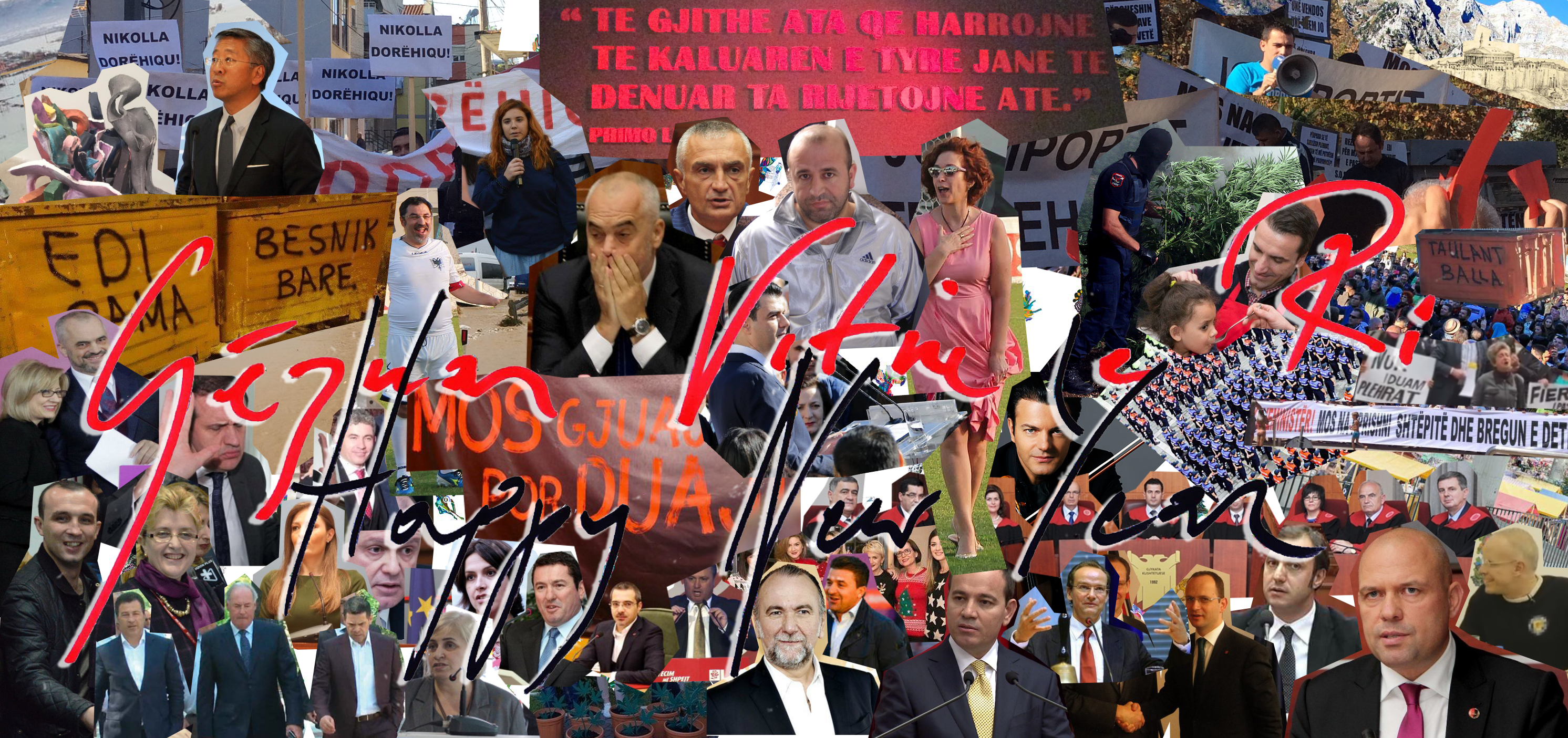
10. EU accession

This is perhaps the least scandalous scandal on this list, but simply typical for the increasing arrogance and impunity with which the government has treated its citizens throughout 2016. Claiming until the very end that Albania just had to pass the vetting law, part of the overall reform of the judicial system, Prime Minister Edi Rama was very certain that this year his enormous efforts and international leadership for peace and prosperity would be rewarded with the opening of the EU accession negotiations.
Early warning signs were ignored or ridiculed. The Chairman of the EU Affairs committee of the Bundestag, who made the effort to come to Tirana to clearly state that Albania had to seriously fight organized crime, drugs cultivation, and corruption as a condition for the opening of the accession talks, was called a supporter of the opposition and irrelevant, all the while his Minister of Foreign Affairs was trying to persuade the same German of Albania’s best intentions.
When the final decision was made not to open accession negotiations – and all conditions were once again confirmed black on white – Rama was quick to once again blame anyone but his own government for the failure, and, openly supported by the EU Ambassador in Tirana, continues to bury his head six foot deep in the sand. It won’t be until 2018 before the EU will reconsider Albania.
9. Skënderbeg Square

Even before finishing the Tirana masterplan, Mayor Erion Veliaj revived Edi Rama’s old dream to transform Skënderbeg Square according to the ideas of his beloved Belgian architecture firm 51N4E (implicated by the Belgian state in Albanian corruption, and designers of the TID Tower, Edi Rama’s private house, the monuments for the victims of January 21, the Center for Openness and Dialogue, the new Theater of Opera and Ballet, and the grave of the former owner of Top Channel) and national artistic treasure Anri Sala (currently featured as “ghost participant” in the Onufri exhibition to crank up its absent prestige).
The reconstruction of Skënderbeg Square was tendered out in a less than decent way, with both construction phases going to Fusha shpk without any other competition, with oversight run by 51N4E for a handsome price. At the last minute, Edi Rama decided on a parking garage annex farmers’ market, which was, again, won by Fusha and without a doubt in full violation of multiple environmental regulations.
Total costs to the public: nearly €13 million.
8. Higher Education reform

The higher education reform, passed this year in spite of resistance from both university students and faculty, envisioned the streamlining of the application system but did the opposite. Early warning signs that the reform would profit the private universities by including them in the government’s centralized student allocation system and public funding scheme fell on deaf ears, and many students – afraid to be left without department – opted to apply to private universities instead, at the cost of high debts. Private university applications skyrocketed.
Meanwhile, entire departments of the public university remained empty and hundreds of students without department. Minister of Education and Sports Lindita Nikolla, in spite of several emergency orders she had to issue to prevent the entire allocation process from completely derailing, refused to accept any criticism and called her destruction of public higher education “a great success.”
The Movement for the University – one of the last hopes of civic activism – has organized several protests against the reform, pelting Prime Minister Rama with eggs and dousing Minister of Education Lindita Nikolla in tomato sauce at a political party event. All protestors were subsequently prosecuted under an antiquated law form the communist dictatorship and face jail time. They will not profit from the end-of-the-year amnesty generously announced by the Prime Minister, nor from intimate contacts in the higher spheres of justice, which happily release gang leaders and multiple murderers at the request of a single mayor – the elections are around the corner, after all!
7. Hydropower plants in nature reserves

While the government has already spent €4 million fighting Italian businessman Francesco Becchetti over the shut down of his hydropower plant project in the natural reserve of the river Vjosa, it continues to destroy Albanian natural heritage by allowing foreign companies to built hydropower plants in protected nature reserves such as Valbona.
In spite of international pressure and expert reports from hundreds of scientists, the government has claimed that “certain contracts” cannot be undone. Hundreds of citizens protested against the construction of hydropower plants in the protected valley of Valbona, yet the government has refused to stop the construction works, which are in violation of the law on the protection of natural heritage. Instead, the Prime Minister Edi Rama allowed a hydropower company to sponsor his own new year’s concert, which he then falsely advertized as “the Vienna concert in Tirana.”
Oh, and the featured artist is co-owner with the hydropower plant company of the main “sponsor” of his own musical event, cashing in €100,000 from the Ministry of Culture. We always thought that sponsoring meant giving money, not receiving it. But four times the annual budget of the National Gallery of Arts indeed seems reasonable public investment into a one-off event to which ordinary citizens could hardly get tickets.
6. Klement Balili

Klement Balili, a.k.a. the “Escobar of the Balkans” remains a free man after multiple state institutions failed to heed early warning signals given by the Greek police and the American DEA. Firmly connected to Albanian political circles, Balili has celebrated Christmas in freedom after a seven-month headstart over the Albanian police and justice system. Meanwhile, General Prosecutor Adriatik Llalla and Minister of Interior Affairs Saimir Tahiri are trying to blame each other and clean their respective streets.
Tomorrow the top five!

